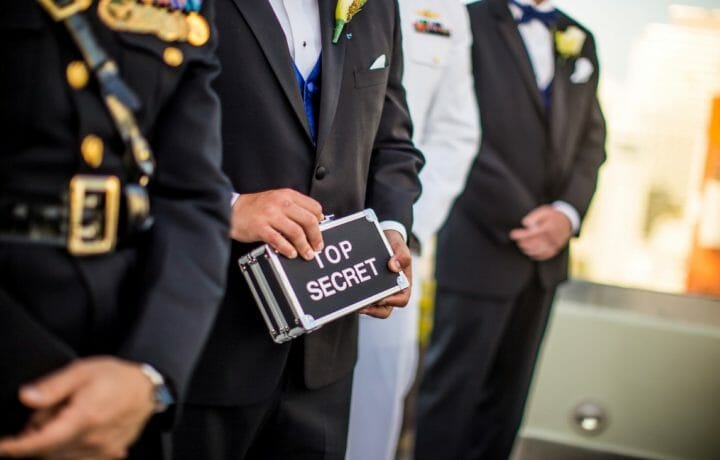You’ve been offered a new position which requires access to US classified information in order to perform the duties. Though you don’t have a security clearance, your employer has determined during the interview process that you were eligible to be granted a personnel security clearance, and requested you to fill out the paperwork for submission. For those unfamiliar, the normal sequence of events is for an interim security clearance to be granted, followed by the final administrative determination as to whether or not you should be granted a full security clearance.
How secret is my clearance?
All who have a security clearance enjoy the trust and confidence of the US Government. A clearance indicates you are eligible to access classified materials in the course of your duties. The fact you have a security clearance is not a secret in and of itself. Indeed there is no prohibition from telling your friends, family or all your social networks. That said, there is an expectation of good judgement.
When sharing with others that you enjoy the trust and confidence of the US Government with a security clearance being granted to you, ask yourself, does this person need to know? Is sharing that fact germane to the conversation? What will this individual do with this knowledge? Remember there is a counterintelligence angle to the need-to-know principle, and your advertising widely you’re privy to sensitive classified information makes the hostile intelligence adversary’s work that much easier as they work to identify potential sources for elicitation, compromise or recruitment.
Need to Know
That said, there are clearly times where you do want to be sure to share your having been provided a personnel security clearance. For example, a review of the many personnel requisitions available on ClearanceJobs.com will have the following notation within the “Security Requirements” field: “US Citizenship and an active TS/SCI with polygraph clearance.” These employers want you to be able to hit the ground running and immediately participate in the classified work, which is at the Top Secret/Special Compartmented Information level. You will need, eventually, to share the required information concerning what organization holds your “tickets” (security clearance) so they are able to verify your eligibility to perform the task for which they wish to hire you.
In sum, having a security clearance does not mean your life now goes into secret mode, nor does it mean that you have access to any and all SECRET information. What it does mean is there is an expectation of discretion and the application of the principles of “need-to-know” surrounding your SECRET work.
What About Employers?
As every entity involved in classified work is aware, their classified engagements are just that, classified. Therefore, according to the NISPOM the presence of a Facilities Clearance (FCL) may not be used in corporate advertising or marketing materials. That said, reference to the need for employees to work within a classified environment requires reference to the existence of a classified engagement, without specific identification to the FCL, customer or specifics of the engagement. Industrial Security Letter 2006-2 provides specific guidance on how employees may refer to their having the requisite level of security clearance when applying for a position with specific qualification requirements.
The passage referring to this situation is provided:
- (2-200) Personnel Security Clearances (PCLs), the Internet, and Job Seeking (ISL 03L-1 #13) The NISPOM clearly prohibits the use of a Facility Clearance for advertising purposes (2-100c, NISPOM). However, individuals may address specific qualification requirements associated with a position by informing prospective employers that they have been granted a PCL at the requisite level identified for the position. Aside from addressing specific qualifications for a particular position at a cleared contractor or Government facility, it is a poor security practice to identify oneself in a public database as a cleared person and become flagged as a possible target for foreign interests. Examples of such flagging, or identifying oneself as a cleared person, include online Internet employment services that solicit clearance information as well as other personnel data, and make this publicly available by electronic means. It should be understood that the audience for the Internet is worldwide and includes a large number of domestic and foreign entities. Other examples of flagging are employment seminars or job fairs that invite only persons granted a clearance to attend and register. In general, these and similar situations may also provide opportunities for foreign targeting and collection efforts. Foreign entities may be interested in identifying individuals who access or can access classified information. It is recommended that persons granted a clearance should consider the prospective audience before identifying themselves as cleared.



